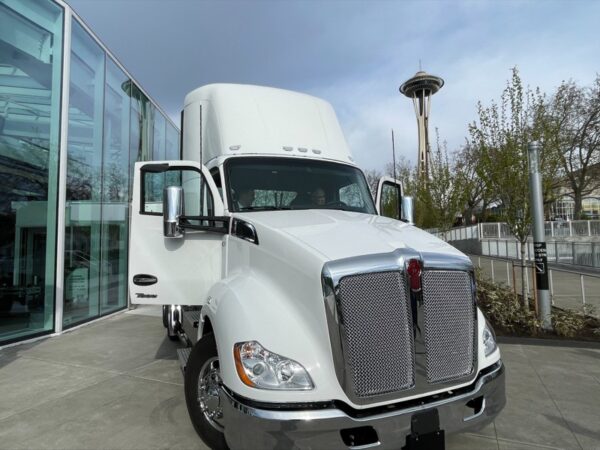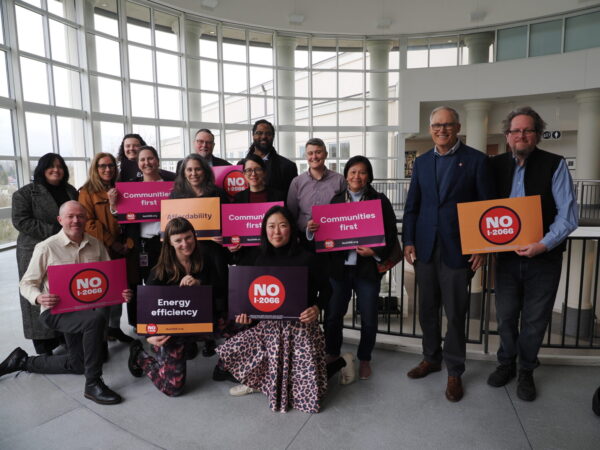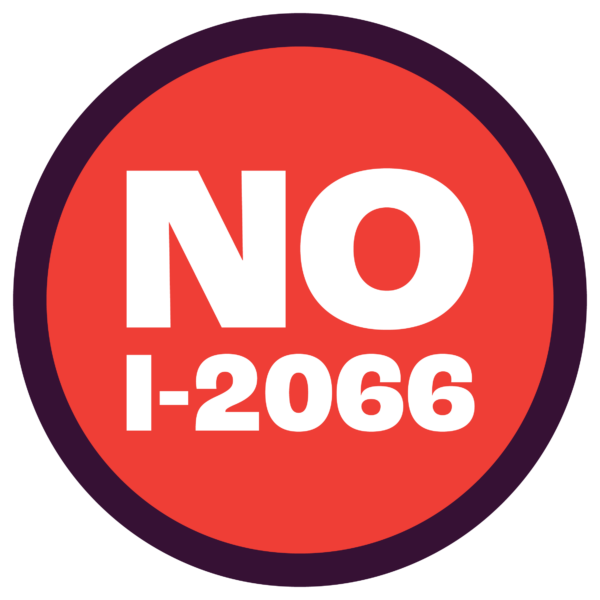Power Past Fracked Gas Coalition
November 22, 2019 (Lacey, WA)—Today the Washington Department of Ecology (Ecology) made a major decision regarding a proposal for the world’s largest fracked-gas-to-methanol refinery in Kalama, WA. Ecology determined the backers of the project failed to provide complete, adequate information to state regulators, and decided to conduct a new Supplemental Environmental Impact Statement (EIS). The decision is another major setback for the world’s largest proposed fracked gas-to-methanol refinery.
The new environmental review will address major gaps in Northwest Innovation Works’ previous review. In October, Ecology sent a letter to Cowlitz County stating that the company behind the refinery provided insufficient information about its carbon footprint and environmental impact. Ecology questioned Northwest Innovation Works’ claims regarding greenhouse gases and asked for a comprehensive and thorough analysis of the project’s global and in-state carbon impact, including an assessment of burning the methanol as fuel. Earlier this month, Northwest Innovation Works and Cowlitz County responded to Ecology by refusing to provide the additional information requested.
“Ecology has agreed that there are significant errors and gaps in the previous analysis,” said Dan Serres, Co-Director of the Power Past Fracked Gas Coalition. “We are confident that this project cannot withstand a real, thorough review. We know this proposal would be a massive generator of climate changing pollution.”
“For over five years, we have counted on our state regulators to seek answers about how this project would impact us, and we support Ecology in requiring a new, robust analysis,” said Linda Leonard, a Kalama resident. “The company sought to mislead our community and regulators. Ecology is right to stand firm in seeking the facts about this project.”
In April, leaked documents showed that the company was promoting methanol for fuel to potential investors, despite telling regulators the methanol would never be burned.
“With the climate crisis upon us, there is no excuse to allow the building of the world’s largest fracked-gas-to-methanol refinery and export terminal which would obligate Washington to decades of fracked gas use,” said Cambria Keely, a lifelong resident of Kalama and teen climate activist. “We appreciate the Department of Ecology for recognizing these facts and requiring a new, honest Supplemental EIS.”
“Ecology’s action today is a huge warning sign for the Kalama methanol refinery ” said Sept Gernez, Organizer with the Sierra Club Washington State Chapter. “We support Ecology’s requirement for accurate information, which is critical for protecting our communities, our environment, and the survival of future generations from this massive fracked gas project and its pollution.”
“In the middle of a climate crisis it is unthinkable to allow massive new fracked gas projects to move forward,” says Joan Crooks, CEO of Washington Environmental Council and Washington Conservation Voters. “Until now, previous deeply flawed and misleading evaluations have moved this project forward and we fully support Ecology’s decision to require thorough and accurate review of this facility to protect our climate, health, and safety.”
“From its safety hazards to disastrous climate impacts, this refinery would seriously threaten human health,” said Dr. Mark Vossler, a cardiologist and the President of Washington Physicians for Social Responsibility. “Health professionals applaud Ecology’s decision, and we will continue to press Washington leaders to reject this dangerous fracked gas refinery.”
Timeline of NWIW’s Methanol Proposals:
- 2014 – NWIW announces methanol refinery proposals in Kalama, WA, Tacoma, WA, and Port Westward, OR.
- 2016 – Facing fierce public opposition, NWIW cancels Tacoma methanol project.
- 2016 – Cowlitz County issues EIS and Shoreline Management Act permits for the Kalama methanol refinery; a coalition of groups appeal.
- September 2017 – Shorelines Hearings Board rules that EIS violates Washington rules for studying greenhouse gas pollution.
- July 2018 – Cowlitz County court agrees that the EIS violates Washington law.
- December 2018 – Cowlitz County releases Draft Supplemental EIS. 1,000 people attend hearing in Longview, WA, with the vast majority urging denial of the project. Over 25,000 send comments urging denial.
- April 2019 – Leaked PowerPoint presentations show that NWIW mislead the public and regulators about the end use of methanol.
- May 2019 – Governor Inslee announces his opposition to the methanol refinery.
- September 2019 – Port and Cowlitz County release final Supplemental EIS.
- September 11, 2019 – Ecology begins review of Shorelines Conditional Use Permit.
- October 9, 2019 – Ecology requests more information to address major gaps in Supplemental EIS.
- November 4, 2019 – Cowlitz County and NWIW respond to Ecology but decline to provide additional data and analysis to address Ecology’s questions.
- November 22, 2019 – Ecology determines that analysis remains inadequate and makes decision to conduct its own Supplemental EIS.
- November 22, 2019 – Ecology press release “Additional environmental review required for Kalama methanol project.”
###
Power Past Fracked Gas is a growing coalition of Pacific Northwest health, environmental, faith, and community groups that believe in the power of clean energy and the value of clean water. We oppose new fracked gas infrastructure that locks our region into decades of continued reliance on dirty energy and harmful projects.
VISUALS:
- Youth Climate Activists, various locations (September 2019), footage by Balance Media.
- Power Past Fracked Gas Rally, Olympia, WA (February 2019), photos by Ale Blakely.
- Power Past Fracked Gas Rally, Kalama, WA (May 2019), photos by Alex Milan Tracy
RESOURCES:
- Washington Department of Ecology Notice of Determination for a Second Supplemental EIS, November 22, 2019
- Letter Cowlitz County Completion of Review to Ecology Re: FSEIS; September 11, 2019
- Press Release: Environmental Review Ignores Climate Impact of Proposed Kalama Methanol Refinery; August 30, 2019
- SEPA Final Supplemental Environmental Impact Statement, August 2019



